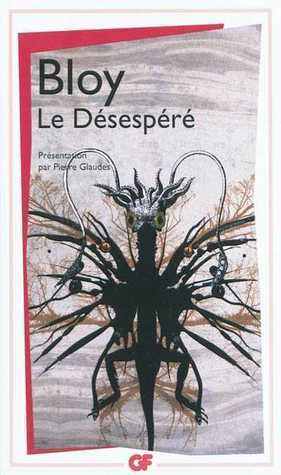
First published in 1886, and presented here for the first time in an English translation, The Desperate Man is arguably Léon Bloy’s masterpiece, and a genre of its own. Written in utmost poverty, when Bloy was forty years old, this ruthless novel lays bare the soul of one of France’s most difficult authors as he appears under the guise of the desperate Marchenoir, a man of genius who is unable to compromise with a society that he sees as corrupt, despicable and hypocritical, while he carries on a bizarre sexually-charged but also mystical relationship with Véronique Cheminot, a former prostitute turned religious zealot. At once a scandalous roman à clef, an anti-capitalist polemic, and a beautiful and hypnotizing tract on Christian existentialism, The Desperate Man is a tempestuous work of spirituality and dissatisfaction—a work of furious outrage, like few others, that explores the terror and consequences of extreme love, both terrestrial and of God.
Author

Bloy was born in Notre-Dame-de-Sanilhac, in the arondissement of Périgueux, Dordogne. He was the second of six sons of Voltairean freethinker and stern disciplinarian Jean Baptiste Bloy and his wife Anne-Marie Carreau, pious Spanish-Catholic daughter of a Napoleonic soldier. After an agnostic and unhappy youth in which he cultivated an intense hatred for the Roman Catholic Church and its teaching, his father found him a job in Paris, where he went in 1864. In December 1868, he met the aging Catholic author Barbey d'Aurevilly, who lived opposite him in rue Rousselet and became his mentor. Shortly afterwards, he underwent a dramatic religious conversion. Bloy's works reflect a deepening devotion to the Catholic Church and most generally a tremendous craving for the Absolute. His devotion to religion resulted in a complete dependence on charity; he acquired his nickname ("the ungrateful beggar") as a result of the many letters requesting financial aid from friends, acquaintances, and complete strangers, all the while carrying on with his literary work, in which his eight-volume Diary takes an important place. Bloy was a friend of the author Joris-Karl Huysmans, the painter Georges Rouault, and the philosopher Jacques Maritain, and was instrumental in reconciling these intellectuals with Roman Catholicism. However, he acquired a reputation for bigotry because of his frequent outbursts of temper; and his first novel, Le Désespéré, a fierce attack on rationalism and those he believed to be in league with it, made him fall out with the literary community of his time and even many of his old friends. Soon, Bloy could count such prestigious authors as Emile Zola, Guy de Maupassant, Ernest Renan, Alphonse Daudet, Joris-Karl Huysmans, Paul Bourget and Anatole France as his enemies. In addition to his published works, he left a large body of correspondence with public and literary figures. He died in Bourg-la-Reine.